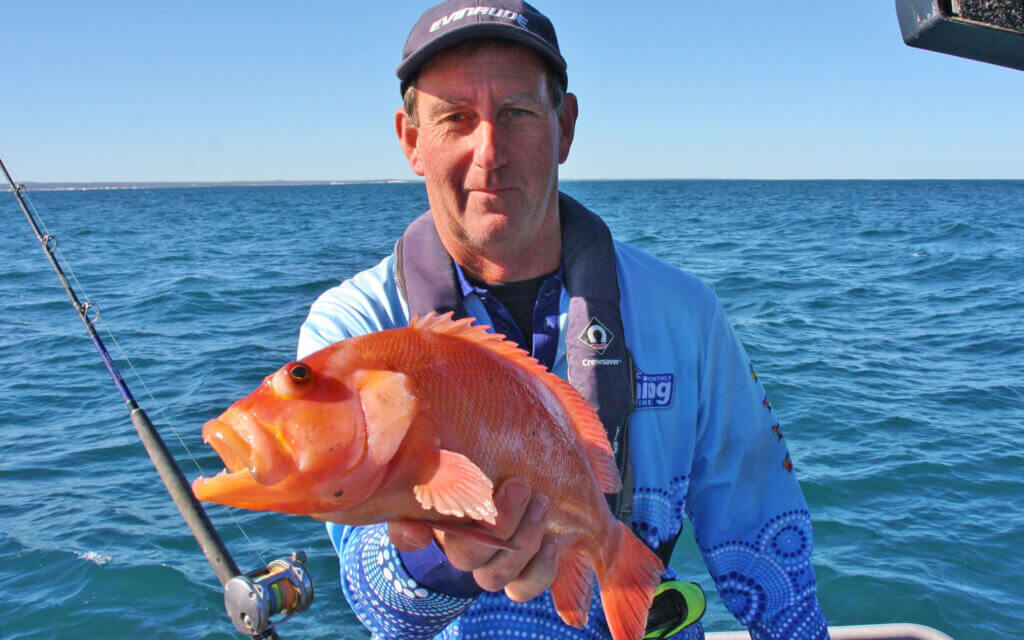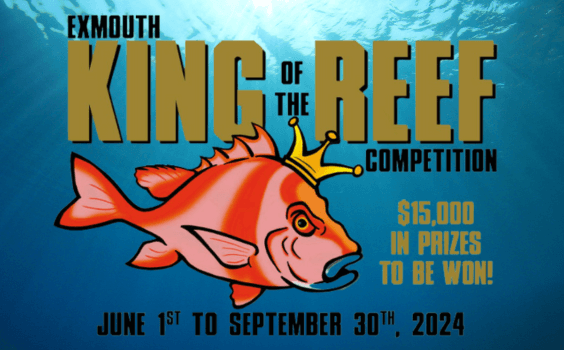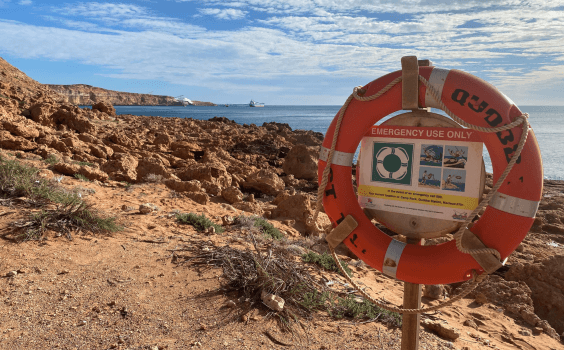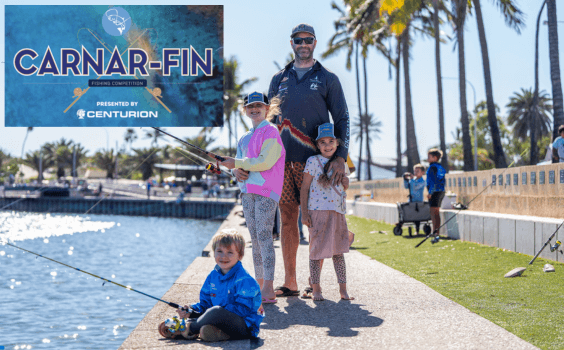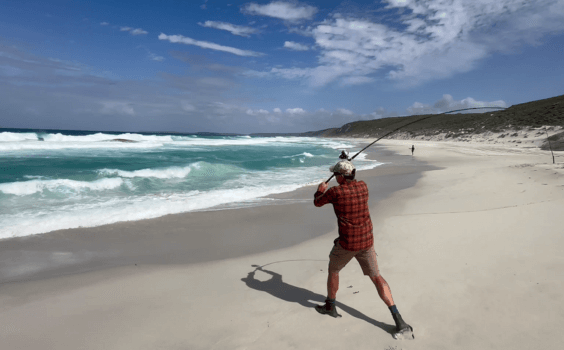Fishing writer and land-based fishing tour operator Peter Fullarton is urging anglers to do more to reduce demersal fish mortality.
As well as contributing to Recfishwest’s weekly State-wide Fishing Report and running Tailored Treks near Lancelin, Peter looks after the popular Fishing Lancelin Area Facebook page.
He recently took to the page to voice his concerns around hearing of a lot of anglers who are targeting west coast demersals in a way that is causing “excessive mortality”.
Recfishwest agrees strongly with Peter that many anglers need to do more to lessen post-release mortality, which was shown to be a major contributing factor to slowing the recovery rate of west coast demersals in DPIRD’s latest stock assessment.
As a keen advocate for securing the future of this fantastic fishery, Peter was happy for us to publish what he had to say below.
Talking to a few fishers over the Easter break and at other times through the year it’s apparent quite a few fishers are targeting demersal species in a way that is causing excessive mortalities. Some people catching and releasing excessive numbers of smaller fish looking for that trophy dhu before they come in or fishing on after a bag is met because they want to make a day of it. It seems particularly baldies are copping a hammering, baldies being the most susceptible to barotrauma when most if not all will die after release from even quite shallow depths. All the popular TV fishing shows do promote catch and release for demersal fish without explaining the consequences to the fishes’ health, making it seem OK and normal to many.
I am not wanting to lecture, rather inform, because not everyone fishes as much as each other or keeps up to date with these details. The current review to reduce the demersal take by half is to be inclusive of ‘total post release mortalities’. Signs of severe barotrauma are bulging eyes and expelled stomach or intestines that have been displaced by the expanded swim bladder. There is also lot more going on within the fish you can’t see. Bubbles form in the blood stream and other internal organs and eyes, similar to a diver with the bends. Displaced internal organs can be injured and there can be significant internal bleeding and clotting of blood.
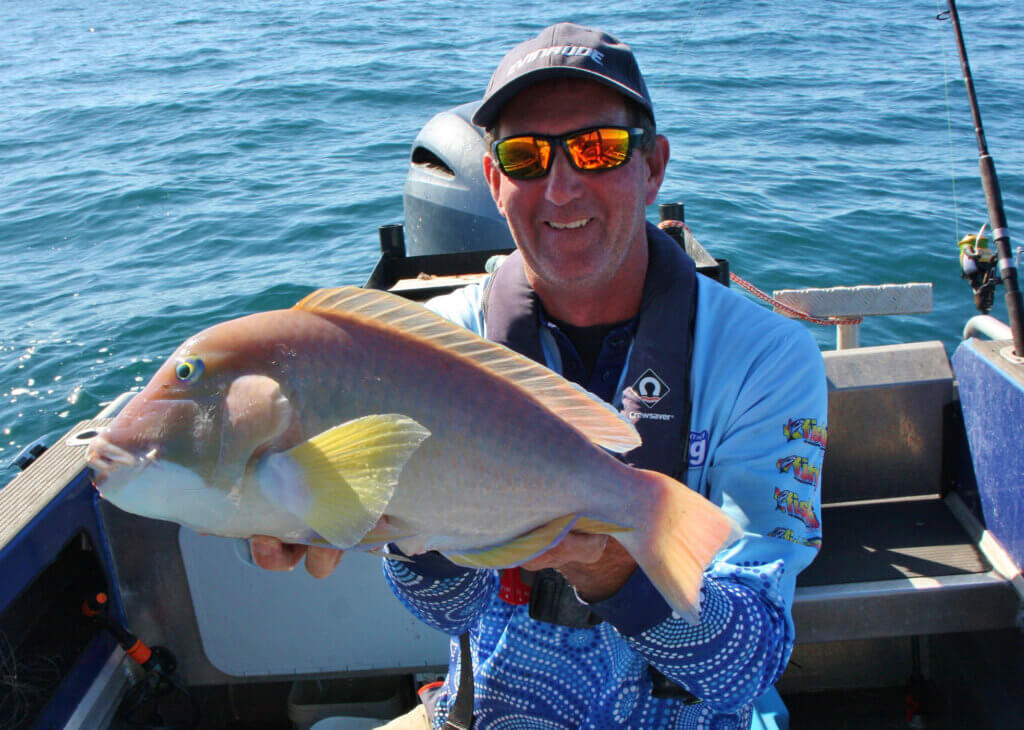
So just sending one back down on a shot line out of sight is by no means a cure. The fish can have severe injuries and may die within hours or days later. Next time you land a baldchin, take the time to have a look within the gut cavity when cleaning your catch. Even from 10 meters they suffer a massive amount of internal organ hemorrhaging and clotting within the gut cavity, probably explaining the total lack of recaptures of tagged fish.
Breaksea cod, baldchin groper, WA dhufish and pink snapper will all suffer to varying degrees. It is important to understand what depth each species can be caught and released from. Everyone needs to make informed decisions on what fish to keep or release from certain depths and when to stop fishing. Personally, I have a rule on my boat to keep every legal-size fish when fishing for demersal species and stop fishing for them once a bag limit is met.
Some of the other things we do on my boat is to move off the heavy reef or lumps once a boat limit is reached for dhufish. Drifting the flats where there are plenty of baldchin groper where it is far less likely to continue catching more dhu. Mortalities are not limited to the release of size fish. Under size suffer equally. When we do feel that little rattle on the line that feels like a smaller fish, we wind up the fish very slowly allowing the fish to vent and will pause the retrieve to allow the fish to decompress for several minutes half way up. This does not prevent the barotrauma but will reduce the effects.
A shot line should be used to send the fish back to the depth it came. Gut hooking fish causes significant mortalities up to 90 per cent. Gut hooking can be halved by using circle hooks instead of J hooks. Also, use hooks of a suitable size for the target species. Large hooks are far less likely to be swallowed by undersize fishes. I use 9/0 hooks while demersal fishing to try eliminating gut hooking undersized fish. Fish released in increasing depth results in significantly more mortalities and depth alone is the main factor in fish survival. Most species considered to have a pretty dismal outlook over 30m.
